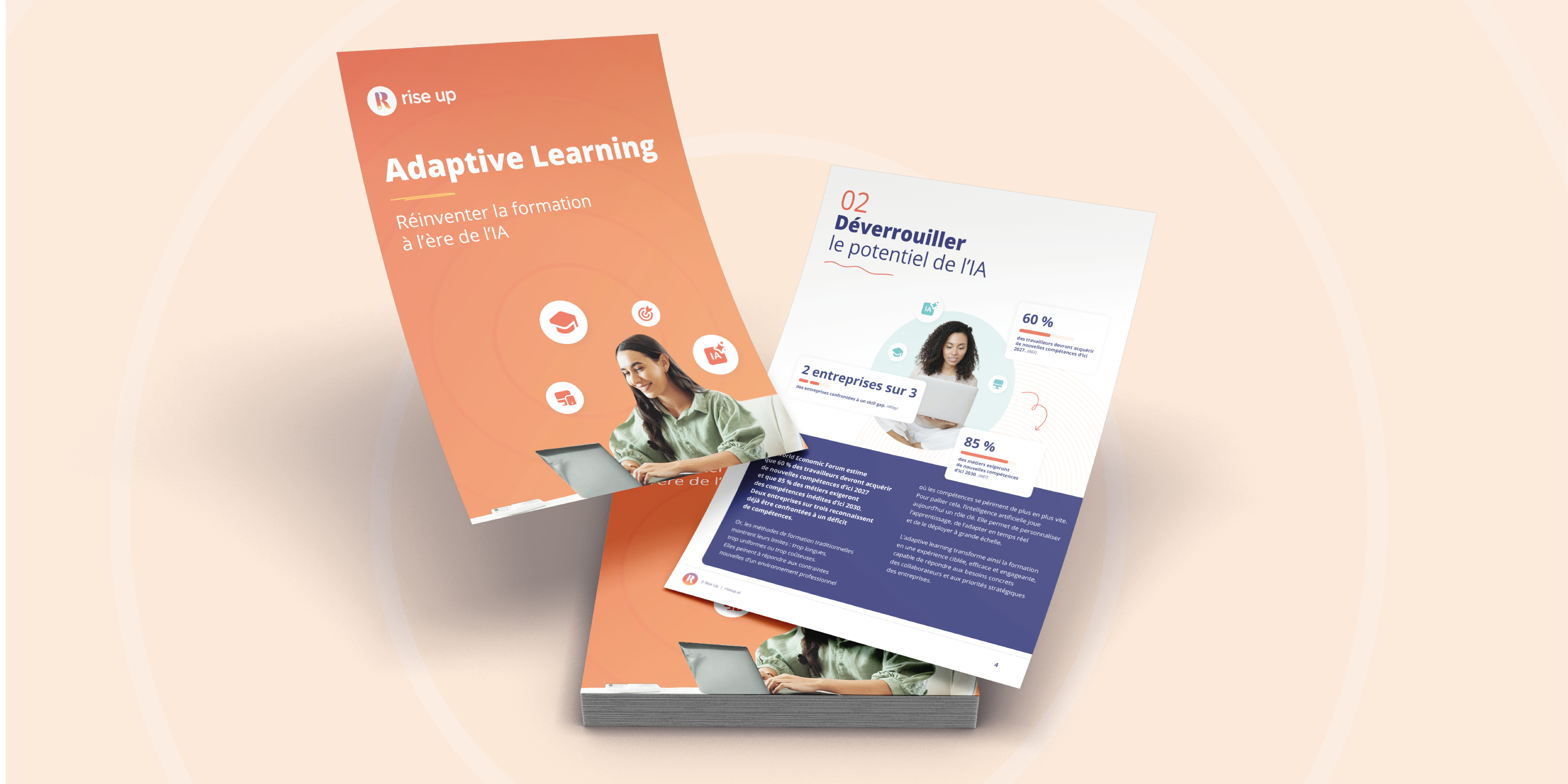Training trends in 2018
3 minutes of reading | 2018-01-10
2018 trends: one more!
January is currently a time of "happy new year" and "best wishes" and articles presenting 2018 trends for training are multiplying. That is why, to be original, we will address some topics to follow and monitor for this coming year.
.jpg?width=1280&name=black-and-white-blackboard-business-chalkboard-356043%20(1).jpg)
E-learning absolutely!
E-learning is absolutely essential! Digital is very present and affects all sectors. Let's talk about the one that interests us here. According to an article by Exclusive RH, published in October 2017, "digital is gaining ground over face-to-face". It even adds that according to the Cegos barometer of last July, classroom training is losing ground to other e-learning solutions such as video and virtual classrooms. The survey recommends an increase from 38% to 56% in the share of digital training in the corporate training offer within three years.
Indeed, e-learning responds to recurring problems for companies and training organizations: a large number of employees and customers to be trained, scattered all over France (or even the world!) and whose overall budget is shrinking. So e-learning still has a bright future!
Are there any new trends that are uberizing the previous ones?
Of course, there are some new features. Learning formats are being developed and strengthened. But the trends remain the same and will remain so for years to come. The human relationship remains paramount.
Accompaniment and contextualisation are always key points to ensure a strong commitment from all generations. This remains a reality even for a generation that has grown up in an increasingly digital society.
The face-to-face must innovate in terms of interactivity and quality
With digital knocking at the door, the demands on the face-to-face presence have become much more stringent. Classroom training must be qualitative, effective and participatory. The learner must be able to quickly grasp the outcomes and envisage the concrete application of the skills acquired.
During our visit to the Learning Show in Rennes, we attended a conference by Albane Vigneron, Sens & Co, on "finding the pleasure of learning". The success of a training course depends in part on the ability of the trainer to accompany but also to stand back and let the learners build the course on their own and learn together, from each other.
Face-to-face training for the millennials !
Millennials feel the need to work in groups. They are motivated by their peers, they see themselves as role models. They wish to be inspired and accompanied to advance in their training. In connection with this peer learning, millennials wish to benefit from a personalized and collaborative training. They want to learn from each other and participate in the construction of the course through sharing and contributions.
We had written about millennials and how to engage them in their learning on our blog. You can find it here for more information. However, they are part of the snapshot, digital and mobile generation.

Virtual reality, mobile, AI and all others
Blended learning, mixing face-to-face and digital, will continue to be an increasingly preferred approach to training. It makes it possible to combine support, contextualisation and mobility, elements previously discussed. Of course, mobile, virtual reality and adaptive learning remain strong trends in the design and personalisation of learning paths.
Artificial intelligence was still a fiction a few years ago but today it is more than a reality. It will be essential to prepare ourselves to evolve with ever more intelligent tools. It will be essential to train ourselves to understand these evolutions but also to develop training in parallel to include these technologies.
Let's not forget the regulations!
Datadock, a tool for verifying the compliance of training organizations, is one of the concerns for the end of 2017 and the year to come. Rise Up organised a workshop last October with its customers to discuss ways of improving its platform in order to better respond to quality indicators. It will be all the more important for training organisations to meet the criteria defined by the law of 5 March 2014, such as the personalisation of training courses and pre-requisites, entry and exit assessments and monitoring of trainee attendance.




